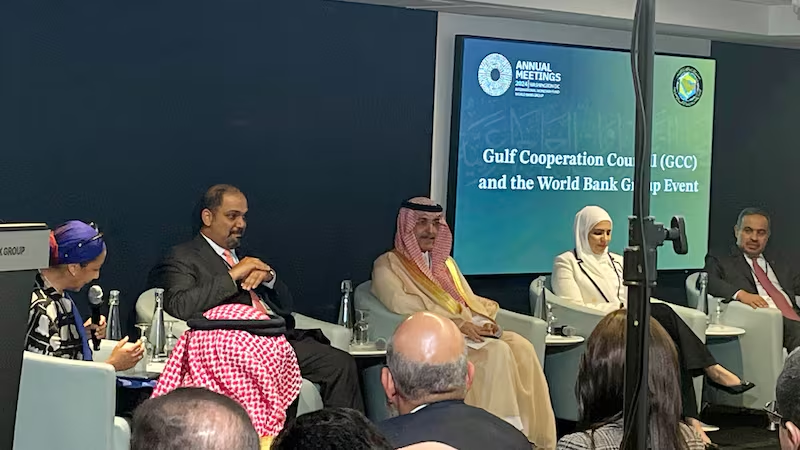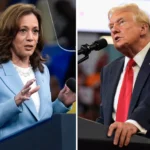At the annual meetings of the International Monetary Fund (IMF) and World Bank, Gulf Co-operation Council (GCC) finance ministers underscored the economic advantages of regional integration. As the region continues its push for diversification beyond oil, officials emphasized collaboration in infrastructure, energy, and data sectors during the first-ever GCC-hosted event at these gatherings.
Qatar’s Finance Minister Ali Al Kuwari, speaking at the GCC Round Table, emphasized the growth of regional cooperation across various sectors, including electric connectivity and the establishment of the regional rail network. He noted that while there had been skepticism about the potential for integration due to the similar economic structures of GCC countries, this year has seen a “growing revolution of the mutual benefits that come from data, co-ordination, and trade.”
Al Kuwari pointed to sustainable development as a key area for collaboration, citing the success of initiatives like the Middle East Green Initiative, spearheaded by Saudi Arabia. He praised cross-border green investments, such as Abu Dhabi’s Masdar constructing Saudi Arabia’s first major wind farm.
Sheikh Salman bin Khalifa Al Khalifa, Bahrain’s Finance Minister, discussed ongoing projects that extend beyond the GCC, including a solar energy partnership with Saudi Arabia and a causeway linking Bahrain and Qatar. Kuwait’s Finance Minister, Nora Al Fassam, highlighted the regional electric grid structure as a “prime example” of Gulf cooperation, aligning with Kuwait’s national energy and sustainability goals.
Saudi Arabia’s Finance Minister, Mohammed Al Jadaan, focused on the region’s growing data center industry, pointing out that the GCC has invested $3 trillion in infrastructure over the past decade. He noted the rising demand for data services and said, “The United Arab Emirates, Saudi Arabia, Bahrain, and different states within the GCC are now actually considering attracting investors to build their data centers using the ample energy in the GCC, not necessarily the conventional energy only.”
Mr. Al Jadaan added, “So you could actually take this in multiple ways, in terms of complementarity, in terms of utilizing your competitive advantage in the region; not only if you serve the region, but also beyond.”
The UAE is already a key player in the data center market, with projects valued at $1.2 billion and more in the pipeline. Saudi Arabia also leads in this space, with numerous facilities under construction. Programmes under New Kuwait 2035 and Digital Oman 2030 are further contributing to the GCC’s technological growth.
The ministers agreed that the GCC is well-positioned to enhance regional integration. Sheikh Salman highlighted the region’s young, digitally literate population as a key asset, along with the GCC’s client-focused approach and speed in updating regulations. “When we adopt a client-focused mindset and look at that investor, whether domestic, regional, or foreign, as a client, then it changes the way that we approach things,” he said.





